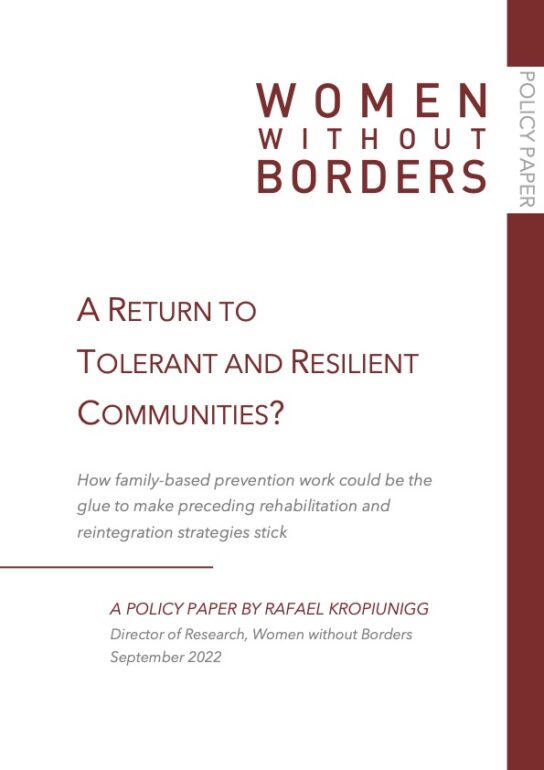In our latest policy paper, WwB Research Director Dr. Rafael Kropiunigg argues that in the context of rehabilitation and reintegration of returning Foreign Terrorist Fighters (FTFs), family-based prevention work in the communities of origin and return is a critical step to ensuring that communities are resilient, tolerant, and prepared to accept returnees. Vice versa, by laying the groundwork in these communities, recidivism, re-radicalisation, and re-marginalisation of FTFs is further prevented.
Governments Rehabilitate; Communities Reintegrate?
In recent years, P/CVE policy primarily has focused on ongoing challenges around returning Foreign Terrorist Fighters (FTFs) and their families. Several central questions emerged as a result: how can we ensure that radical ideologies are not reintroduced, recidivism is avoided, and returnees have the best possible chance at becoming productive and constructive members of their respective societies? How will we support the process by which they can journey from the margins of society to potentially becoming role model citizens in their everyday lives—living and breathing counternarratives, even? And how do we prevent the demonisation and marginalisation of those born into FTF families?
Despite the progress that has been made towards addressing these challenges, current strategies are falling short of a truly integrated and whole-of-society approach. One overlooked piece has been consistent community-based prevention. The missing conversation around so- called ‘communities of origin’ appears to be rooted in the assumption that prevention work is not relevant to the rehabilitation and reintegration process. Indeed, Women without Borders until recently had presumed prevention and reintegration to be separate and only loosely related. Our work with vulnerable communities, however, made it increasingly clear that the places to which many individuals are gradually returning have a stake and a role to play.
Read the entire policy paper here.


